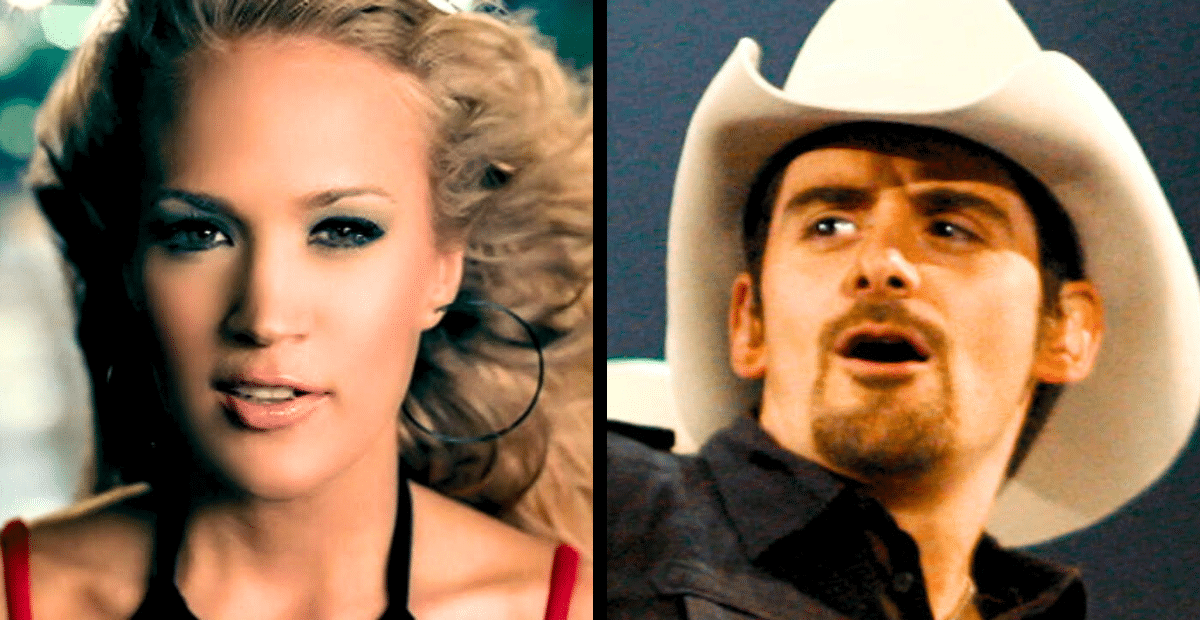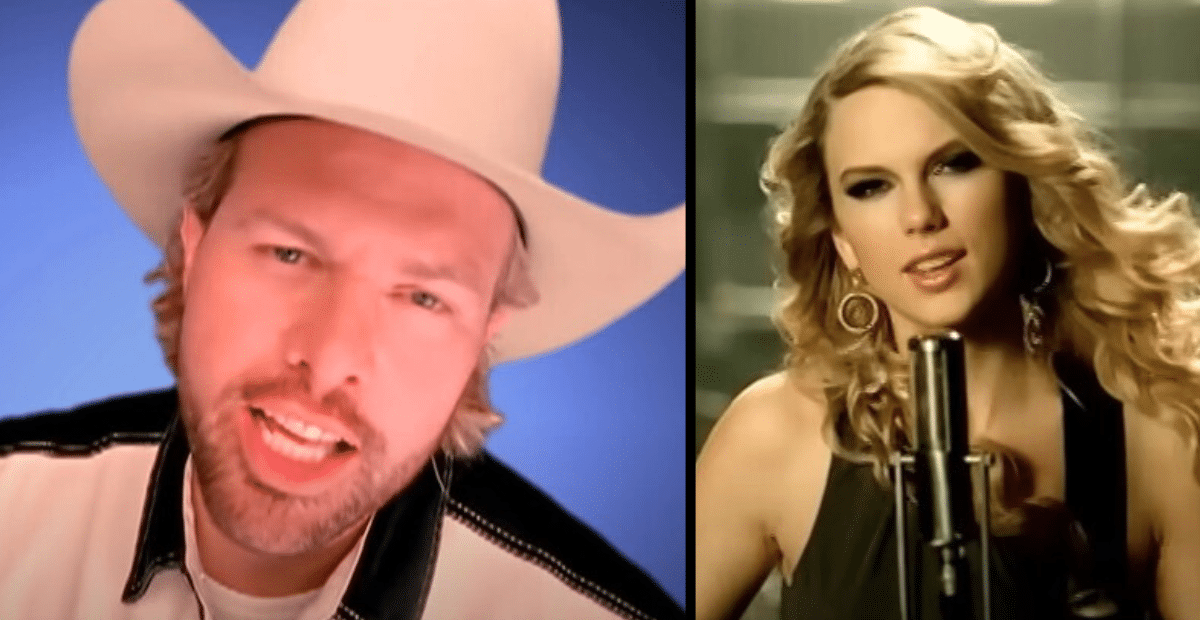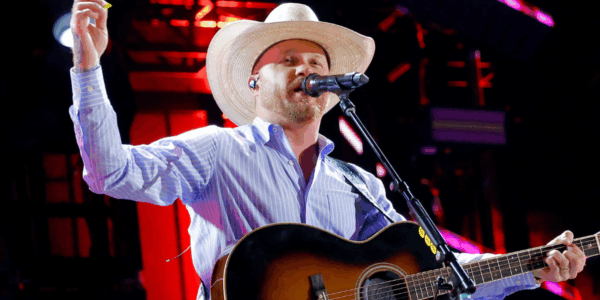7 Country Hits From The 2000s That Are Now Considered Offensive Today
on Feb 21, 2025

Why Do Modern Listeners Feel Some Country Hits From the 2000s Are Offensive?
When modern country fans play hits from the 2000s, they sometimes encounter tracks they consider offensive. Although the 2000s weren’t that long ago, there’s no argument that attitudes, perspectives, and the general culture have changed significantly in the past few decades.
These differences have led some younger country fans to look down on songs released in the 2000s and earlier.

As we’ve seen, modern listeners can play tunes from the ’90s, ’80s, and beyond and deem them offensive for various reasons. Some of these songs were considered controversial when they were first released. Others were viewed as “fine” at the time of their debut, but feelings toward them have changed in the past 20-ish years.
We assume you’re here because you’re a country music fan yourself. And you likely love many of the songs that hit it big in the 2000s. So why is it that some modern fans find a few of these hits to be offensive today? Keep reading to learn the reasons.
One note before you continue: this list only contains songs released as singles from 2000 to 2009. Songs released in the 2010s or 2020s will not be featured here.
Listing 7 Major Country Hits From The 2000s Some Fans Find Offensive Today
“I’m Still A Guy” – Brad Paisley
Brad Paisley co-wrote “I’m Still a Guy” with Kelly Lovelace and Lee Thomas Miller. He released the track in 2008 as the fourth single from his album 5th Gear.
Paisley has become known for his collection of comedic songs, and “I’m Still a Guy” is part of that group. In the track, the narrator shares how he and his lady view the world differently. As just one example, he says when she sees a deer, she sees Bambi, while he sees “antlers up on the wall.”
As the song continues, the narrator shares how his lady has tried to “change” him. While he may write her love songs, hold her purse, or walk her “sissy dog,” he maintains that he is “still a guy.”
Toward the end of the track, the narrator says, “It’s hip now to be feminized.” But he proclaims he’ll never follow that trend, singing, “Oh, my eyebrows ain’t plucked
There’s a gun in my truck. Oh, thank God, I’m still a guy.”
“I’m Still a Guy” reached the #1 spot on the Billboard Hot Country Songs chart following its release. It also crossed over to claim the #33 slot on the all-genre Billboard Hot 100 chart.
While many people found the song funny in 2008, some modern listeners feel it’s offensive. Those who criticize the song don’t appreciate how the narrator seemingly dismisses women’s feelings and interests. Critics also take offense over the narrator’s attitude toward men who don’t fit the stereotypical definition of “masculine.”
For his part, Paisley always intended for the song to be lighthearted. As he told Country Weekly in 2008, he wanted to “capture this struggle a little bit between men and women in a playful way.”
“Red Ragtop” – Tim McGraw
Jason White wrote the emotional song “Red Ragtop.” Tim McGraw released the track as a single in 2002.
As the narrator, McGraw sings about the woman he loved when he was younger. When she unexpectedly became pregnant, the couple “decided not to have a child” due to their age.
The couple ends their relationship not long after. In the present day, McGraw’s narrator realizes it’s a “waste of time” to wonder about “what might have been.” Still, he can’t help but think of the woman he once loved.
“Red Ragtop” reached the #5 spot on the Billboard Hot County Songs chart and the #40 position on the all-genre Billboard Hot 100 chart. This success came despite the fact that multiple radio stations banned the song from airplay due to it mentioning the intentional ending of a pregnancy.
This is why some people still consider “Red Ragtop” offensive today, as the subject remains controversial.
“Goodbye Earl” – The Chicks
Dennis Linde wrote the song “Goodbye Earl,” which became one of The Chicks‘ biggest hits. Sons of the Desert first recorded the song for an unreleased album in the ’90s. The Chicks released their version in 2000 as the third single from their album Fly.
“Goodbye Earl” tells the story of two friends, Mary Ann and Wanda. Wanda marries a man named Earl, who is physically abusive.
Mary Ann flies in to help Wanda devise a plan to remove Earl from her life. That’s when they decide “that Earl had to die.”
The song implies that Mary Ann and Wanda kill Earl by slipping poison into his black-eyed peas. They wrap him up in a tarp, put him in the trunk of a car, and say “goodbye” to him for good before moving on with their lives.
“Goodbye Earl” reached #13 on the Billboard Hot Country Songs chart. It also peaked at #19 on the all-genre Billboard Hot 100 chart. Rolling Stone later ranked the track at #23 on its list of the 200 Greatest Country Songs of All Time.
“Goodbye Earl” generated some controversy upon its initial release. Some radio stations were afraid to play it because of its violent themes.
Beyond that, “Goodbye Earl” sparked a debate that continues to this day. While some feel the song played an important role in raising awareness about domestic violence, others think it went about doing so in the wrong way.
Rita Smith, who served as the executive director of the National Coalition Against Domestic Violence, told the Los Angeles Times:
“Many battered women feel trapped and feel that violence is their only option to get away from the abuser. We don’t want them feeling that way. We want them to know there are resources available to them…We want stations who play the record to tell their listeners that there is a hotline number they can call if they’ve been a victim of violence.”
Many modern listeners feel the same way, which is why they think “Goodbye Earl” is one of the more offensive country hits from the 2000s.
“Picture To Burn” – Taylor Swift
Taylor Swift co-wrote “Picture to Burn” with Liz Rose. She released the track as the fourth single from her debut album in 2008, when she was only 18 years old.
Swift once told The Washington Post that she felt inspired to write “Picture to Burn” about a guy she went to high school with. She said, “It’s about a guy who didn’t like me back, and I got really mad, you know?“
You can hear that anger in the lyrics, as Swift sings:
“I hate that stupid old pickup truck you never let me drive. You’re a redneck heartbreak who’s really bad at lying. So watch me strike a match on all my wasted time. As far as I’m concerned, you’re just another picture to burn.”
“Picture to Burn” peaked at #3 on the Hot Country Songs chart. It also reached the #28 slot on the all-genre Billboard Hot 100 chart.
The original song contained a lyric that used the word “gay” as an insult. This lyric was changed for the radio edit and music video, in which Swift sings, “That’s fine; you won’t mind if I say.” She no longer sings the original lyric live, either.
However, knowing what the original lyric was, some modern country fans are still offended by “Picture to Burn.”
“I Wanna Talk About Me” – Toby Keith
Bobby Braddock wrote “I Wanna Talk About Me,” which Toby Keith released as a single in 2001. It was the second single from his album Pull My Chain.
The song’s narrator expresses his frustration that his lady constantly talks about her “dreams,” “schemes,” “and moisturizer creams,” among other things. He wishes he had the chance to talk about himself for once, singing, “I wanna talk about me, wanna talk about I, wanna talk about number one, oh my, me my.“
“I Wanna Talk About Me” reached the #1 spot on the Billboard Hot Country Songs chart. It also peaked at the #28 position on the all-genre Billboard Hot 100 chart.
While the song was one of the biggest country hits of the 2000s, some fans find it offensive today. These fans feel the song is problematic because Keith’s narrator seems selfish in his desire to talk about himself. Fans who take issue with the song also don’t appreciate how the narrator seemingly dismisses his partner’s passions and fears instead of being supportive.
“Honky Tonk Badonkadonk” – Trace Adkins
Dallas Davidson, Randy Houser, and Jamey Johnson co-wrote “Honky Tonk Badonkadonk.” Trace Adkins released it as a single in 2005.
Johnson once told CMT that he and his pals were inspired to write the track after watching a woman dance at a club. Houser was the one who suggested the title, and the three wrote the song within an hour.
In “Honky Tonk Badonkadonk,” Adkins’ narrator admires a dancing lady in the bar who has a lovely “figure.” He remarks, “There oughta be a law, get the Sheriff on the phone. Lord have mercy, how’d she even get them britches on.“
The track shimmied its way to the #2 spot on the Billboard Hot Country Songs chart. It also crossed over to claim the #30 slot on the all-genre Billboard Hot 100 chart.
While some modern fans think “Honky Tonk Badonkadonk” is simply silly, others are more offended by it. Those who criticize the song feel it objectifies women, making it uncomfortable to listen to.
“Before He Cheats” – Carrie Underwood
Chris Tompkins and Josh Kear co-wrote “Before He Cheats.” Carrie Underwood released the song in 2006 as a single from her debut album, Some Hearts.
In “Before He Cheats,” Underwood’s narrator believes her man is out “getting frisky” with another woman. Wanting to teach him a lesson, she destroys his vehicle by carving her name into his seats, slashing his tires, and smashing the headlights with a bat. She hopes this will make him think twice before he cheats again, but says the next time he does cheat, it won’t be on her.
“Before He Cheats” is one of the most famous country songs about cheating and revenge. The track reached the #1 spot on Billboard’s Hot Country Songs chart and crossed over to claim the #8 spot on the all-genre Billboard Hot 100.
The track also led Underwood to several award wins. Perhaps most notably, she won the Grammy for Best Female Country Vocal Performance, and songwriters Tompkins and Kear won the Grammy for Best Country Song. The track was also named the Single of the Year at the 2007 CMA Awards.
Despite its popularity and distinction as one of Underwood’s signature songs, some modern listeners are turned off by “Before He Cheats.” Critics mention how the narrator only expresses her belief that her partner is cheating, using the word “probably” multiple times. Since the narrator may not have concrete evidence her man has been unfaithful, some fans feel she is being irrationally paranoid and controlling.
Those who already don’t agree with the narrator’s attitude certainly don’t agree with her destroying her partner’s vehicle in retaliation for her unconfirmed suspicions. Other fans feel that even if the narrator’s man has been cheating, she still shouldn’t seek revenge by ruining his personal property.
Revisiting These “Offensive” 2000s Country Hits In Modern Times
While the country songs in this list were huge hits when they debuted in the 2000s, some fans have a less favorable opinion of them today. Still, there are many fans who continue to enjoy these songs and don’t view them as problematic.
Revisiting these songs today, we recognize why some people hit “skip” whenever they play. But we simultaneously acknowledge how these tracks will forever be part of country music history and will never be erased from it.
If you enjoyed reading this, learn about other “controversial” country hits from the past in our list of 11 Iconic Country Songs That Were Banned From Radio.


















